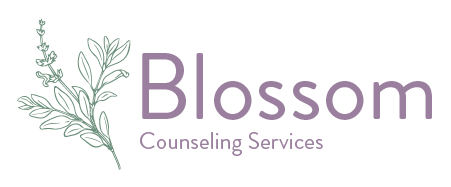Across the globe, countless women are on a remarkable journey of healing and self-discovery: recovery from substance abuse. This path is unique for each woman, but there are common challenges and triumphs that many encounter.
Understanding these complexities is crucial for creating supportive environments where women in recovery can thrive.
This blog delves into the experiences of women in recovery, exploring the challenges they face, the unique support systems available, and the path towards long-term healing.
What are the Four C’s of Women for Sobriety?
The Women for Sobriety (WFS) program, a cornerstone of support for many women in recovery, emphasizes four core principles known as the “Four C’s”:
- Choice: Recovery is a personal choice, and WFS empowers women to take ownership of their journey. This means recognizing the power they have to choose sobriety and a life free from addiction.
- Connection: No one recovers alone. WFS fosters a strong sense of connection through supportive communities and peer relationships. Women can share experiences, offer encouragement, and learn from each other’s journeys.
- Courage: Facing addiction and pursuing recovery takes immense courage. WFS celebrates the bravery it takes to confront challenges and embrace a new life.
- Change: Recovery is a transformative process. WFS emphasizes the importance of personal growth and change, both internally and in external circumstances.
These core principles provide a foundation for women in recovery to build a life of empowerment, connection, and lasting change.
What are the Struggles for Women in Recovery?
The road to recovery is rarely smooth. Women in recovery often face specific struggles, including:
Gender Stereotypes:
Societal expectations can make it difficult for women to seek help for addiction. The stigma surrounding addiction and the perception that it’s a “man’s problem” can be a significant barrier.
Trauma and Abuse:
Women are more likely than men to experience trauma and abuse, which can be a contributing factor to addiction. Healing from these experiences is an essential part of recovery.
Social Pressures:
Social circles that revolve around alcohol or drug use can make it challenging for women to maintain sobriety. Finding supportive communities and developing healthy coping mechanisms is crucial.
Mental Health Challenges:
Co-occurring mental health disorders are prevalent among women in recovery. Addressing these conditions is essential for long-term success.
Body Image and Self-Esteem:
Addiction can take a toll on physical and emotional well-being, leading to negative self-esteem and body image issues. Focusing on self-care and developing healthy coping mechanisms is vital.
These are just some of the struggles women in recovery may face. Understanding these challenges allows us to create more supportive environments and resources tailored to their specific needs.
What is the Motto of the Women for Sobriety?
The Women for Sobriety (WFS) program is guided by a powerful motto: “Sobriety is possible, and progress is real.”
This motto encapsulates the core message of hope and empowerment for women on their recovery journeys.
- Sobriety is Possible: WFS emphasizes that recovery is achievable for all women, regardless of their background or the severity of their addiction.
- Progress is Real: Recovery is not a linear journey. There will be setbacks, but every step forward, no matter how small, is a victory. WFS celebrates progress and encourages women to focus on their accomplishments, big and small.
This motto serves as a source of strength and inspiration for countless women in recovery.
What Types of Barriers Do Women Face in Long-Term Recovery?
Even after achieving sobriety, women may face various barriers to long-term recovery. These include:
Lack of Access to Treatment:
Finding affordable and accessible treatment programs specifically designed for women can be challenging. This can hinder a woman’s ability to get the support she needs early on in her recovery journey.
Childcare Concerns:
Women with children may face challenges finding safe and reliable childcare while they attend treatment or participate in support groups.
Financial Strain:
The cost of treatment, transportation, and medication can be a significant burden for women in recovery, especially those who are single parents or have limited employment opportunities.
Relapse Prevention:
Staying sober requires ongoing effort and support. Women may face challenges in managing triggers, developing healthy coping mechanisms, and preventing relapse.
Rebuilding Relationships:
Addiction can damage relationships with family and friends. Rebuilding trust and repairing these relationships takes time and effort.
These are just some of the barriers women in recovery face in the long term. By acknowledging these challenges and creating supportive systems, we can empower women to achieve lasting sobriety and build fulfilling lives.
The journey of recovery for women is unique and multifaceted. Understanding the challenges they face and the resources available is crucial for fostering supportive environments that empower women to heal and thrive.
Key Takeaways:
- Women in recovery face specific challenges due to societal stereotypes, trauma, and social pressures. Addressing these challenges requires a holistic approach that considers mental health, self-esteem, and the need for safe and supportive communities.
- The Women for Sobriety (WFS) program offers a valuable framework for recovery, emphasizing the importance of choice, connection, courage, and personal change. Their motto, “Sobriety is possible, and progress is real,” serves as a beacon of hope for countless women on their journeys.
- Barriers to long-term recovery can include lack of access to treatment, childcare concerns, financial strain, relapse prevention, and rebuilding relationships. By acknowledging these hurdles, we can work towards creating support systems that address these specific needs.
Empowering Change:
Supporting women in recovery is not simply about abstinence from substances. It’s about empowering them to reclaim their lives, rebuild healthy relationships, and embrace their full potential. This can be achieved through:
- Increased access to affordable and gender-specific treatment programs.
- Providing childcare support for mothers in recovery.
- Developing financial assistance programs to ease the burden of treatment costs.
- Offering support groups and relapse prevention programs tailored to women’s experiences.
- Promoting awareness and reducing the stigma surrounding addiction, particularly for women.
By working together, we can create a world where women in recovery have the resources and support they need to achieve lasting healing and build fulfilling lives.
Recovery is a courageous journey, and by fostering supportive environments, we can celebrate the strength and resilience of women on their paths to a brighter future.
Get Started
You may call, text message, email, or fill out the form to reach us. We will respond within 48 hours, Monday through Friday.
We Will Help You Find Your Fit
We know that looking for a counselor can feel overwhelming.
We are here to help guide you to the counselor that is best for your needs. If that counselor turns out to
not be in our practice, that's okay. We know great counselors that we'd be happy to refer you to.
What’s most important to us is that you get connected with the help you need. We are here for you.

